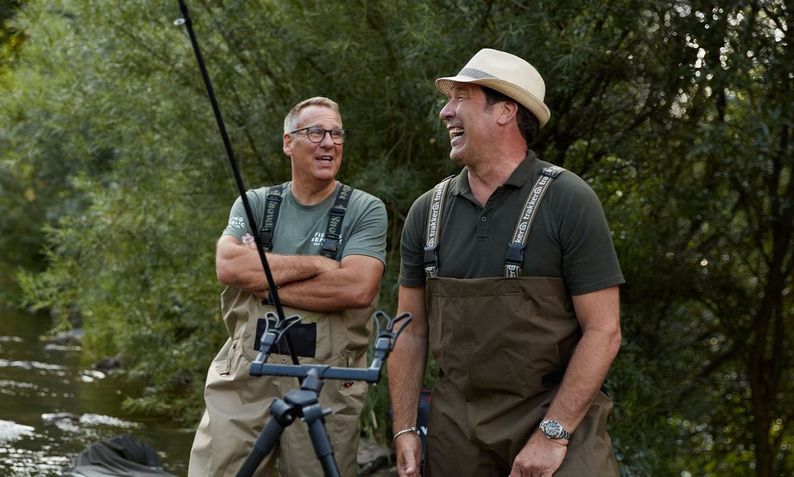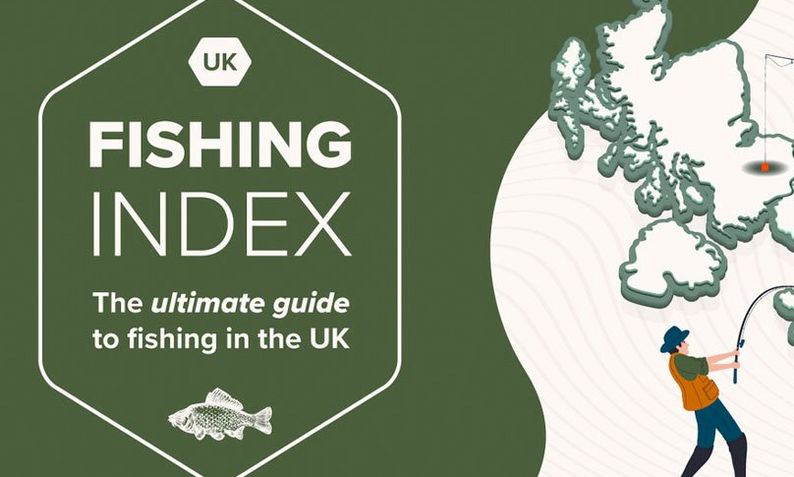Fishing is an exhilarating and exciting sport, but it doesn’t come without dangers and risks. Here at Fishing Republic, we have broken down the five most important dangers you need to look out for on your latest fishing adventure and the measures and steps you can take to avoid them to stay safe.

Danger: Falling into the Water
Falling into the water while fishing is a real risk, even for the most experienced angler. Slippery rocks or bank surfaces are extremely prevalent in many fishing locations. Falling into the water is extremely dangerous because of the shock your body goes into with rapid temperature change which can cause the following reactions: hyperventilation, muscle spasms, and adrenaline bursts. Another danger of falling into the water is the river current, if sufficiently strong, it can quickly sweep you into a dangerous position. Reports show that drowning incidents are just as likely in inland water as in the sea, and so preventative measures must be taken to ensure yours and others safety when on the bank.
How to avoid Falling into the Water
Falling into the water can easily be avoided with a few simple steps and techniques. The first is to ensure the bank you set up your fishing equipment is on a solid surface. Never overload yourself with gear when approaching a flood bank as it can seriously disrupt your centre of gravity, be safe and make multiple trips if you must. It is always worth carrying a storm pole or a bank stick to help you traverse steep, slippy pegs. When fishing in rivers with higher water conditions, bringing a life jacket is a must, what may be a minor inconvenience today may save your life tomorrow.
Falling into the river can sometimes happen, if it does, then it is important to try and remain calm, even with the shock of the water. If the current is strong, it is important not to fight against it, try to angle yourself towards shore and use your legs to bounce off the bed of the water. Once out of the water, it is important to act quickly to fight off exposure or hypothermia so make sure to always bring a change of clothes and a towel.
Danger: Lightning and Severe Weather Conditions
Lightning can be exceptionally dangerous, especially if you’re in the middle of a river on a boat, or sitting beside a cluster of trees near the bank. Even if the lightning is not in the immediate area, lightning can strike up to 10 miles away from its source cloud with 30 people a year in the UK being hit by lightning with an average of 2 deaths. Heavy rains can make conditions around the bank very slippery, increasing the likelihood of falls and injuries, while gale-force winds can blow equipment, or if strong enough, even people around, which is very dangerous around cold, fast-moving rivers.
How to avoid Lightning and Severe Weather Conditions
The first thing you should do before any fishing trip is to check the conditions to see if it’s safe for the session to go ahead during your planned schedule. If the forecast predicts lightning, storms, heavy rain, or gale winds, it is best to postpone your session. If a lightning storm comes on suddenly while you’re by the bankside, you should stop immediately and seek refuge indoors, fishing rivers and lakes tend to be surrounded by woodlands and trees making them more vulnerable and susceptible to lightning. Fishing in lighter rain must always be carried out with the correct equipment, ensure that your footwear is grippy and offers stability and that your fishing set up is on firm ground surrounded by cover.
Danger: Injuries
Like any other sport, fishing can cause injury through the repetition of movements that put strain or pressure on certain joints or muscles. Common injuries for anglers include wrist soreness, muscle numbness, and tennis elbow. Shoulder muscle injuries are also common, often caused by hours of casting and adding excess weight onto bait. Contact with fishing equipment is also a common cause of cuts and bruises and must be tended to quickly to prevent more severe damage. Falling can result in fractures or impact injuries, often caused by slippy bank surfaces.
How to avoid Injuries
Joint or muscle issues can easily be prevented through a quick stretch warm-up before you start fishing and ensuring you are using the correct technique and form. If you’re new to fishing, make sure a partner teaches you how to use the correct form, as it will prevent bad habits from forming, and decreases the risk of injury. Learning techniques with both your dominant and non-dominant hand reduces fatigue in your dominant hand, vastly reducing the chances of injury. If you feel soreness in one of your joints or pull a muscle, stop fishing and seek medical attention. For small cuts or bruises, first aid or medical kits can stop bleeding and reduce swelling. Fractures must be left to heal and it is highly recommended not to fish during this period to ensure there is no aggravation of the injury.
Danger: Heatstroke
Heat exhaustion is when you become very hot and start to lose water or salt from your body, meaning you can no longer cool your body down. Heatstroke during fishing is a very real risk on hot days due to high exposure and high levels of exertion. Heatstroke should be taken seriously as it can lead to the following symptoms: tiredness and weakness, feeling faint or dizzy, headaches, muscle cramps, feeling sick and heavy sweating.
How to avoid Heatstroke
Luckily, heatstroke is uncommon and can be easily avoided with a couple of preventative measures. The first would be to apply sunscreen to all areas of the skin that will be exposed to the sun, protecting you from UV rays. The next is to set up your fishing equipment in a covered shaded area, if the fishing position is in the sun, you should regularly take breaks and seek out shelter. Make sure to stay hydrated, fishing can be an exhausting and exerting sport - so make sure you’re replacing the water you’re losing. On hot days, it is recommended that you do short stints, if you're with a partner, swap throughout the session. Keep a watch or an alarm set so you know exactly how long you’ve been out and exposed to the sun.

Danger: Bacterial diseases - Ticks
Although irregular and uncommon, bacterial diseases can be passed on by ticks, small spider-like creatures often 1mm to 1cm long with either six or eight legs. They tend to populate woodland and moorland areas and are particularly common between March and October. One of the diseases that ticks carry is known as Lyme disease which can result in a rash that can last several weeks. Lyme disease is not deadly and can be treated easily when found early.
How to avoid bacterial diseases from Ticks
Ticks are usually nothing to worry about if they are removed quickly. This can be done using thin, finely toothed tweezers - grip the tick around the surrounding skin and pull away without twisting or crushing the tick. Afterward, wash the skin and apply antiseptic cream around the bite. Instantly seek medical attention if the bite starts to become itchy or painful over the following days, or if you’re worried always err on the side of caution and seek professional aid.
Explore another area
Now you know how to stay safe, be sure to check out our other angling advice blogs to help improve your form and prevent injury! Looking for somewhere amazing for your next fishing trip? Explore our guide to the top 10 fishing rivers for a wide choice of stunning bodies of water. We also have exclusive interviews and features with brand ambassador David Seaman including a fishing trip with Gazza, which can be found - here.
Shop Fishing Safety Equipment
Shop our huge variety of fishing equipment, with a vast array of safety equipment to help you prepare for your next fishing session, including our camping equipment and fishing clothing to keep you sheltered from the elements and our range of footwear that offer excellent grip that will help keep you to keep your footing on the bankside.

